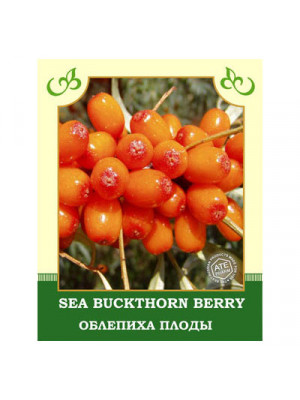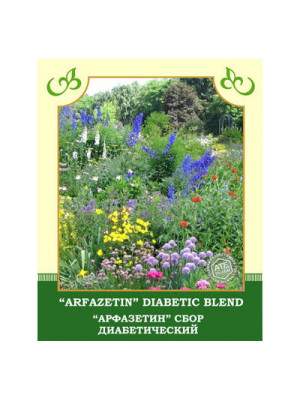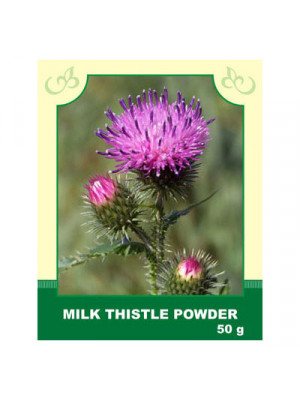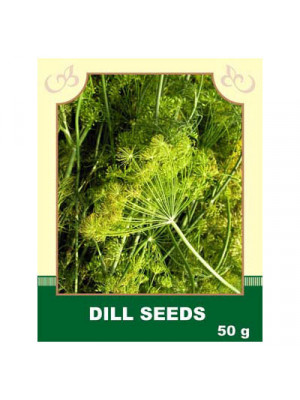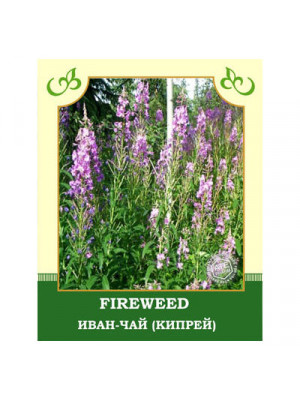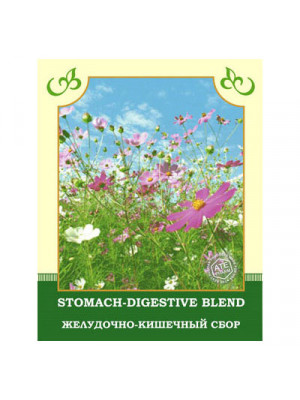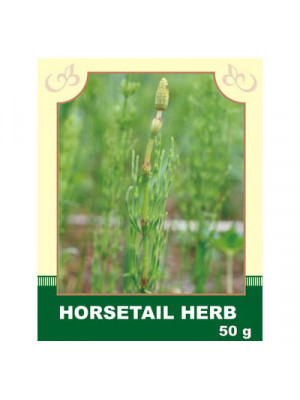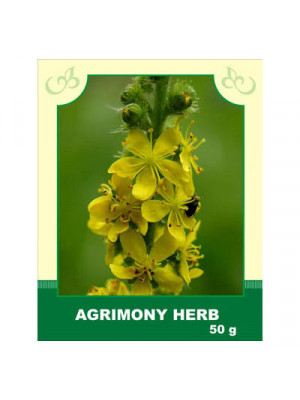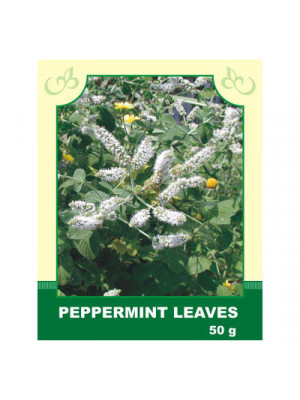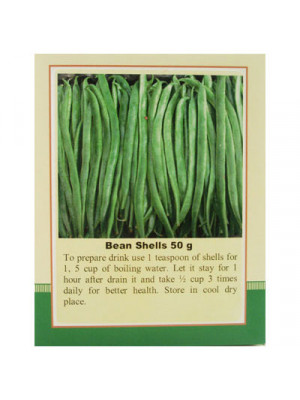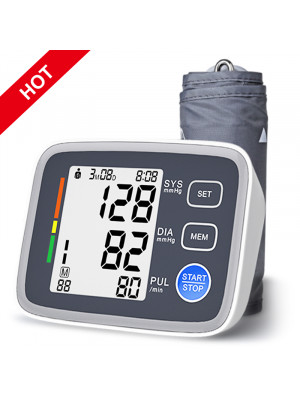Search results for 'Chamomile Flowers 50 g'
Description. Sea Buckthorn is one of the important natural resources growing from Europe to China. For centuries, the people of central and southeastern Asia have used sea buckthorn as an agent of traditional medicine to prevent and heal various ailments. Today, the plant is primarily valued for its fruits, which provide vitamin C, vitamin E, B1, B2, K, P and other nutrients (sodium, magnesium, silicon, iron, aluminum, calcium, manganese) antioxidants, oils rich in essential fatty acids, and other useful components. The most important pharmacological functions attributed to sea buckthorn are: anti-inflammatory, antimicrobial and vitaminous. Sea buckthorn has been shown to have a potent antioxidant activity, mainly attributed to its flavonoids and vitamin C content. Vitamin B in Sea Buckthorn has a positive effect on Mens Health. Uses. There are five areas of sea buckthorn use: as an aid to patients undergoing cancer therapy; a long-term therapy for reduction of cardiovascular risk factors; reduction of gastrointestinal ulcers; internal and topical therapy for a variety of skin disorders; and as a liver protective agent (for chemical toxins) and a remedy for liver disorders. Sea buckthorn berries are use for avitaminosis and escorbuto.
Warning! Before using any herbal products, make sure that you have full knowledge of how the herb works and any adverse reaction it may cause.$8.99- Contains: Chamomile flowers, St. John's wort, Horsetail, Rose hips, Bilberry sprouts, Haricot beans, Hercules Club root. Uses: This blend is used for its hypoglycemic and restorative actions. It is helpful for prevention and reduction of light forms of diabetes, it reduces level of sugar in blood and considerably improves atate of health.
Warning! Before using any herbal products, make sure that you have full knowledge of how the herb works and any adverse reaction it may cause. For more detailed information about each herb see 'Herbs' section.$6.99 In folk belief, 1 tablespoon of meal is thought to completely neutralize alcohol before a feast. The leaves of milk thistle are considered a mild laxative and diaphoretic.
The seeds are used for hepatitis, gallstone disease, colitis, hemorrhoids, diseases of the spleen, thyroid gland, as well as for salt deposits, edema, dropsy, obesity, radiculitis, and joint pain in allergic skin diseases, baldness, and psoriasis. The meal is effective in alcoholism, constipation, reduces blood sugar levels, purifies the blood, and treats varicose veins.
Method of application and dosage: Steep 1 teaspoon of seeds in 250 ml boiling water, infuse for 20 minutes, strain, and drink hot in small sips, one glass in the morning on an empty stomach, half an hour before lunch, and in the evening before bedtime.
For the meal, boil 30 g in 0.5 L of water on very low heat until half of the liquid evaporates. Strain, drink 1 tablespoon every hour from morning to evening, or take 1 tablespoon of powder 4-5 times a day 20 minutes before meals, washed down with water. The course of treatment is one month. If necessary, repeat the course after 2-3 weeks. Halve the doses for children.
Contraindications: Individual intolerance.
$5.99Internally: Taken for indigestion, insomnia, and spasms, angina, headaches, hypertension, vomiting, belching, hemorrhoids, and to stimulate appetite, for colic; for stimulating milk secretion in breastfeeding women. An infusion of dill seeds is used for liver and biliary tract diseases.
Method of application and doses: Infusion: 1 tablespoon is poured with 1 glass of boiling water, infused for 15 minutes, strained. Take 1 tablespoon up to 6 times a day 15 minutes before meals in a cold form.
Externally: Used in the form of compresses for eye diseases, for pustular skin lesions.
Contraindications: Individual intolerance.
$5.99Internally, it is taken as an anti-inflammatory and analgesic agent for stomach ulcers, gastritis, colitis, migraines, and insomnia. It stimulates cardiac activity. A water or alcohol extract of cypress prevents the inflammatory process and has a healing effect in acute and chronic diseases of the prostate, adenoma, inflammation of the ureters, chronic inflammation of the bladder, as well as in supportive and absolutely harmless therapy after prostate surgery.
Methods of application and dosage: 15 g of raw material is poured with 200 ml of boiling water, heated in a water bath for 30 minutes, infused at room temperature for 10 minutes, strained, and taken 1 tablespoon 3-4 times a day before meals.
Externally, it is used for rinsing wounds and ulcers. Compresses - as a pain reliever for otitis, bruises.
Contraindications: individual intolerance.
$6.99Composition: chamomile, peppermint, dill (fruits), ground elder, licorice.
Indications: Gastritis with increased acidity, peptic ulcer of the stomach and duodenum, chronic colitis, biliary dyskinesia, spasms of the smooth muscles of the gastrointestinal tract.
$5.40Internally: Used as a diuretic for edema due to insufficient circulation, as well as for inflammatory processes of the bladder and urinary tract, pleurisy with a large amount of exudate, and as a hemostatic agent, especially for uterine and hemorrhoidal bleeding. Increases urine output, reduces the amount of protein in it, improves overall metabolism in the body, reduces edema of various origins, and stops inflammatory processes.
Method of application and doses: Steep 4 tablespoons of dry herb in 2 cups of hot boiled water, strain. Drink the infusion (warm) sip by sip throughout the day.
Externally: Used to strengthen hair, treat old wounds and ulcers, and in the treatment of skin diseases. Steep 50 g of the herb for a day in 3 cups of cold water, strain. Use for baths, rinses, and compresses.
Contraindications: Individual intolerance, in case of acute kidney inflammation. Poisonous plant, requires caution in use.
$6.99Internally, it is taken for gastrointestinal diseases, hemorrhoids, gallbladder issues, bleeding, rheumatism, herpes, inflammation of the laryngeal mucosa, as well as for furunculosis, poorly healing wounds, migraines, nocturnal enuresis, atony of the bladder, and urolithiasis. Infusion with honey is one of the best remedies for liver and spleen diseases.
Method of application and dosage: Steep 2 tablespoons of raw material in 400 ml boiling water, infuse for 2 hours, strain, and take 1/2 cup 4 times a day before meals.
Externally, the infusion is used for rinsing the oral cavity in various inflammatory processes (tonsillitis, laryngitis, pharyngitis), for nasal congestion, and for washing wounds and ulcers, as well as for abrasions and bruises. Steep 5 tablespoons of raw material in 400 ml boiling water, infuse for 15-20 minutes, strain, squeezing the remaining raw material.
Contraindications: Individual intolerance. Use with caution for children and elderly people.
$6.99Internal use:
Take it internally for spasms of the gastrointestinal tract, flatulence, nausea, vomiting; as a choleretic agent; in cases of nervous excitement and insomnia.
Application and dosage: Pour 1/2 tablespoon of raw material with 200 ml of boiling water, boil for 15 minutes in a water bath, then infuse for 45 minutes at room temperature. Strain, squeezing out the remaining raw material. Bring the finished infusion to the original volume and take it internally in doses of 1/3-1/2 cup 2-3 times a day 15 minutes before meals.
External use:
Externally, the infusion of peppermint is used for rinsing the nasal mucosa during a cold; for rinsing the oral cavity in case of unpleasant breath; for baths in case of itching of the skin, neurodermatitis, and eczema. For baths: pour 50 g of mint leaves with 10 liters of boiling water, boil for 15 minutes over low heat, and infuse until cooled.
Contraindications: Individual intolerance. Overdose of peppermint preparations is not allowed.
$6.99Internally: The main properties of bean pods: reduce and eliminate inflammatory processes; have a diuretic effect; normalize blood glucose levels; accelerate recovery from viral diseases. Normalize the functioning of the cardiovascular and urogenital systems.
Method of application and doses: For brewing, 2 tablespoons of dried crushed bean pods are poured with warm boiled water (2 cups). Then place it in a water bath for a quarter of an hour and infuse for another hour. When following all the rules, the plant will release the maximum nutrients into the decoction. To dilute the concentrate, add water to the original volume and boil again. Take 1/2 cup 3 times a day, preferably before meals.
Contraindications: Individual intolerance, during pregnancy, breastfeeding, and for those suffering from allergies.
$6.99


